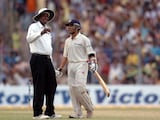Silent heart attacks, also known as silent myocardial infarctions (SMIs), are heart attacks that occur without the typical symptoms like chest pain or discomfort. These conditions are often difficult to detect, but there are still signs to be aware of. Here are some signs of a silent heart attack, how to identify them, and what to do if you notice these signs.
10 Signs of silent heart attacks to always watch out for:
1. Fatigue
Feeling excessively tired or worn out, even after plenty of rest, could be a sign of a silent heart attack. Pay attention to sudden and unexplained exhaustion that lasts for days or weeks.
2. Discomfort in the chest
Unlike the severe chest pain associated with a typical heart attack, silent heart attacks might cause mild discomfort or pressure that comes and goes. Look for intermittent tightness, squeezing, or mild pain in the chest that might be mistaken for indigestion or muscle ache.
3. Shortness of breath
Feeling breathless, especially during physical activity or without exertion, could indicate a heart problem. Notice if you suddenly become breathless even after minimal effort or at rest.
4. Nausea or indigestion
Silent heart attacks may cause gastrointestinal symptoms such as mild nausea, stomach pain, or indigestion. Pay attention to unexplained or recurring digestive issues without any other apparent cause.
5. Sweating
Perspiring without any apparent reason, especially in cold temperatures or during rest, can be an indicator of a silent heart attack. Notice if you suddenly start sweating excessively without engaging in physical activity or experiencing an increase in ambient temperature.
6. Discomfort in other areas of the body
Silent heart attacks may cause discomfort or pain in various parts of the body, including the jaw, neck, arms, back, or stomach. Be aware of mild or intermittent pain or discomfort that appears in areas away from the chest.
7. Dizziness or lightheadedness
Feeling faint, dizzy, or experiencing unexplained lightheadedness may indicate a silent heart attack. Take note of sudden or recurring dizziness or a feeling of being about to faint.
8. Sleep disturbances
Silent heart attacks can disrupt sleep patterns, causing insomnia, frequent awakenings, or sudden and significant changes in sleep quality. Pay attention to changes in your sleep patterns, such as difficulty falling asleep, waking up frequently during the night, or waking up feeling unrested.
9. Anxiety or unexplained feelings of unease
Silent heart attacks may result in feelings of anxiety, unease, or a sense of impending doom. Notice if you experience unexplained or excessive worry, anxiousness, or feelings of dread.
10. Unexplained weakness or discomfort in the upper body
Silent heart attacks might cause general weakness or aching sensations in the upper body, including the arms, shoulders, or upper back. Be aware of consistent, unexplained weakness or discomfort in the upper body, which may come and go.
If you notice any of these signs, it is important not to ignore them. Even though they are often subtle, they can indicate an underlying heart condition. Prompt medical attention is crucial to receive appropriate diagnosis and treatment. It is recommended that you contact your healthcare provider or call emergency services immediately if you experience these signs.
Disclaimer: This content including advice provides generic information only. It is in no way a substitute for a qualified medical opinion. Always consult a specialist or your own doctor for more information. NDTV does not claim responsibility for this information.















